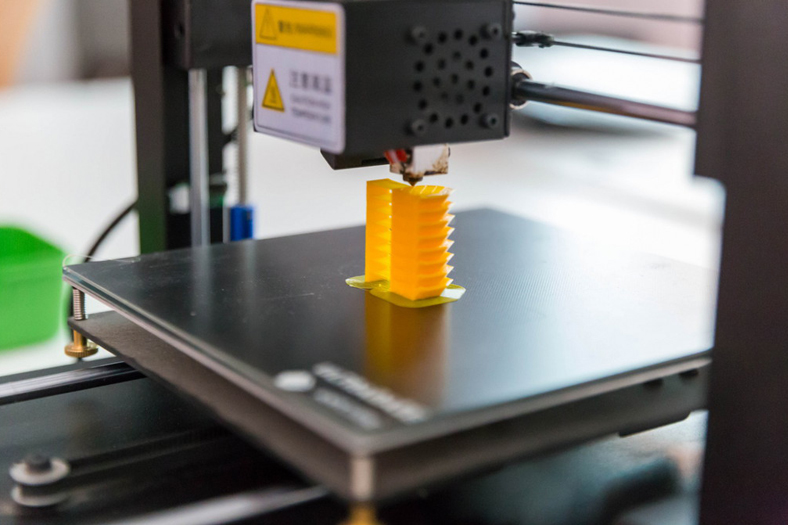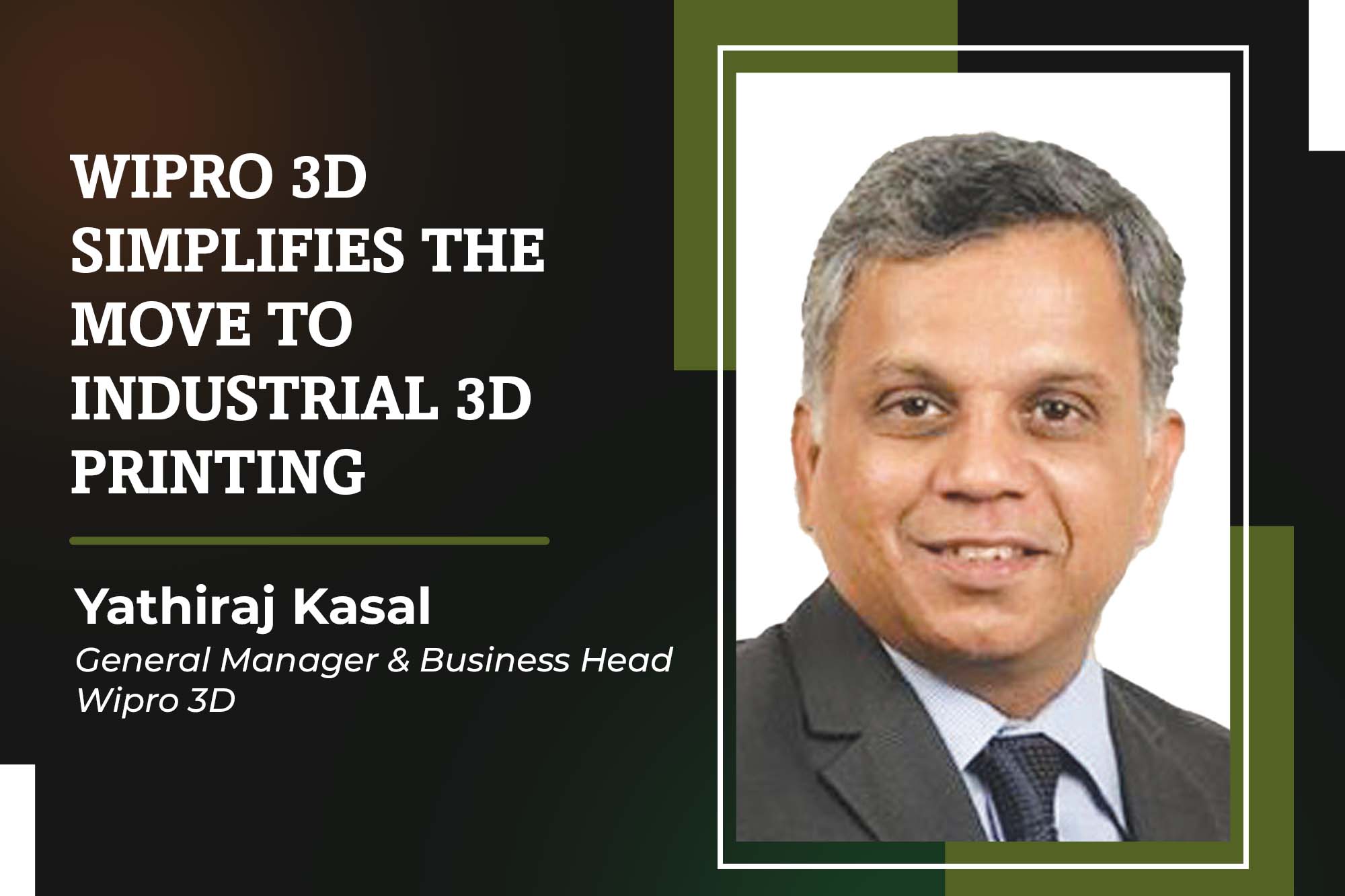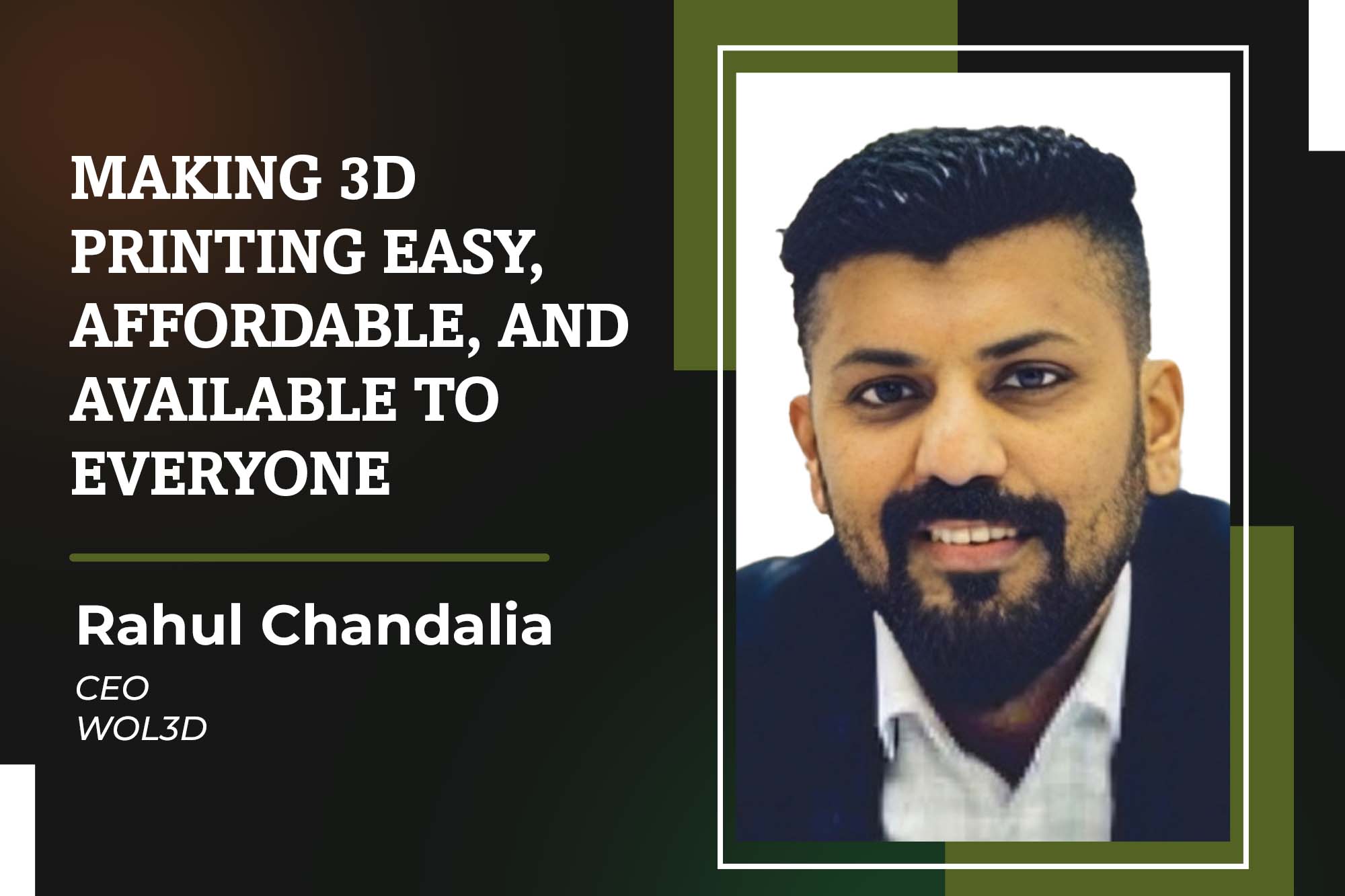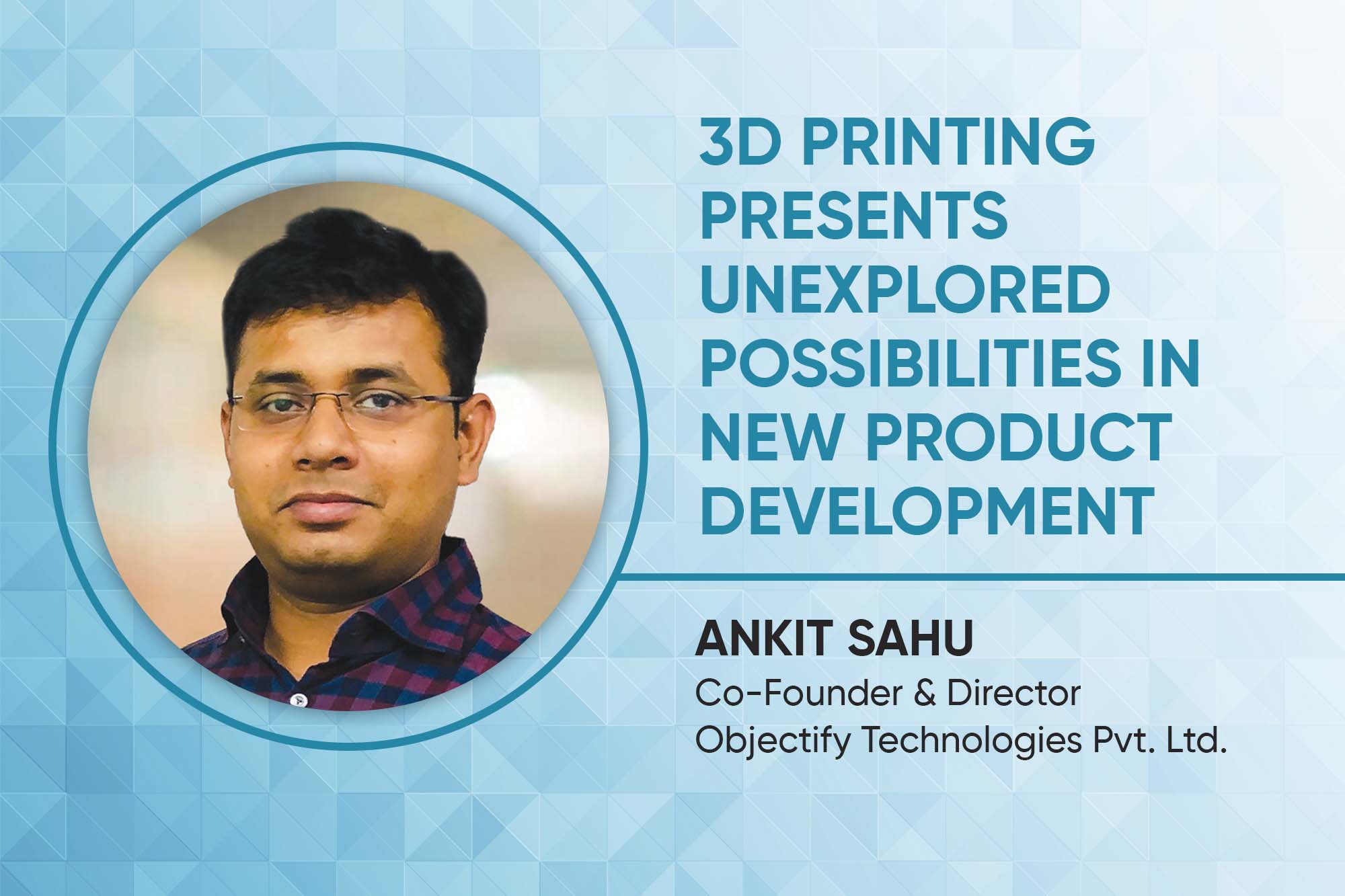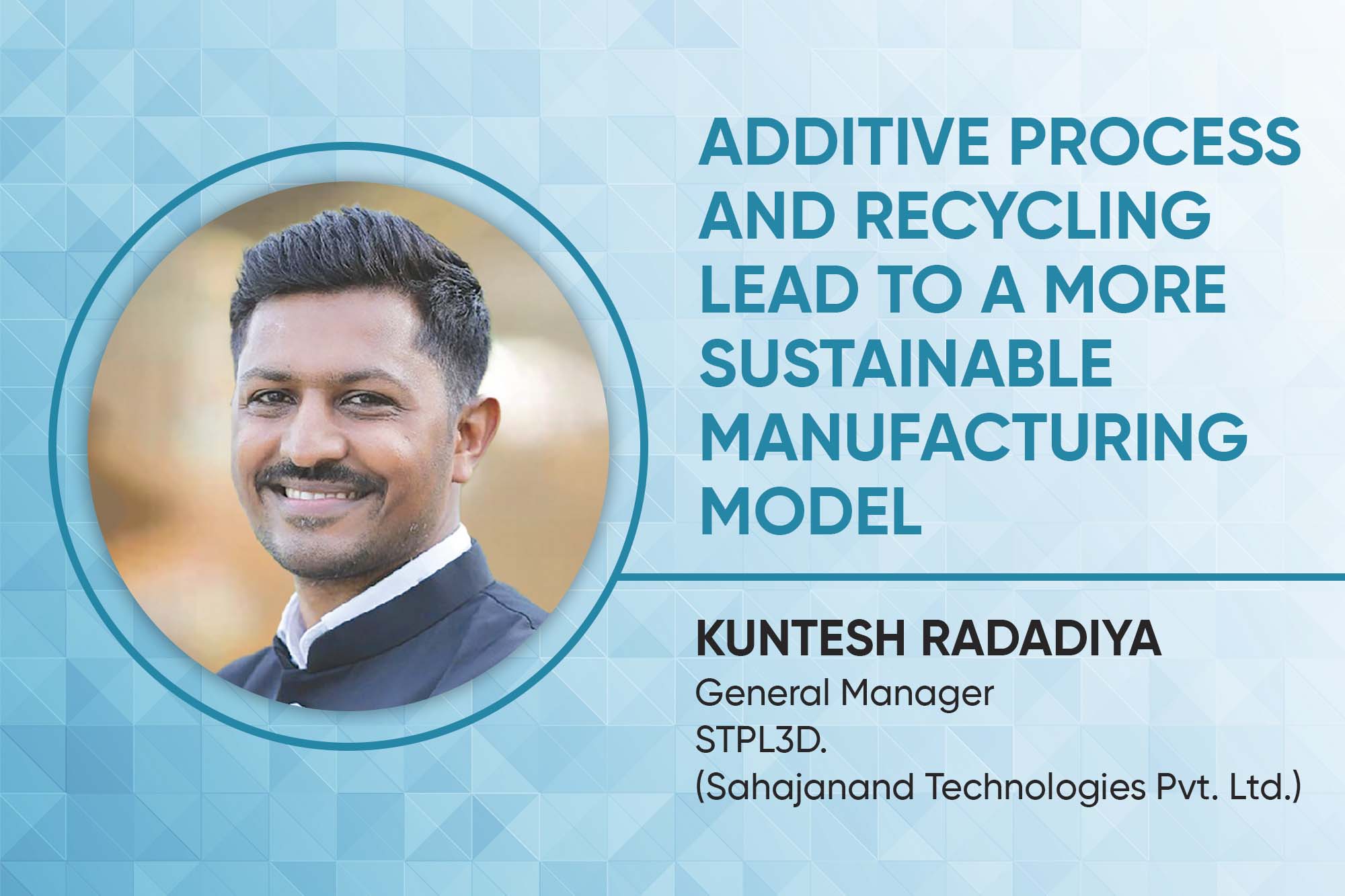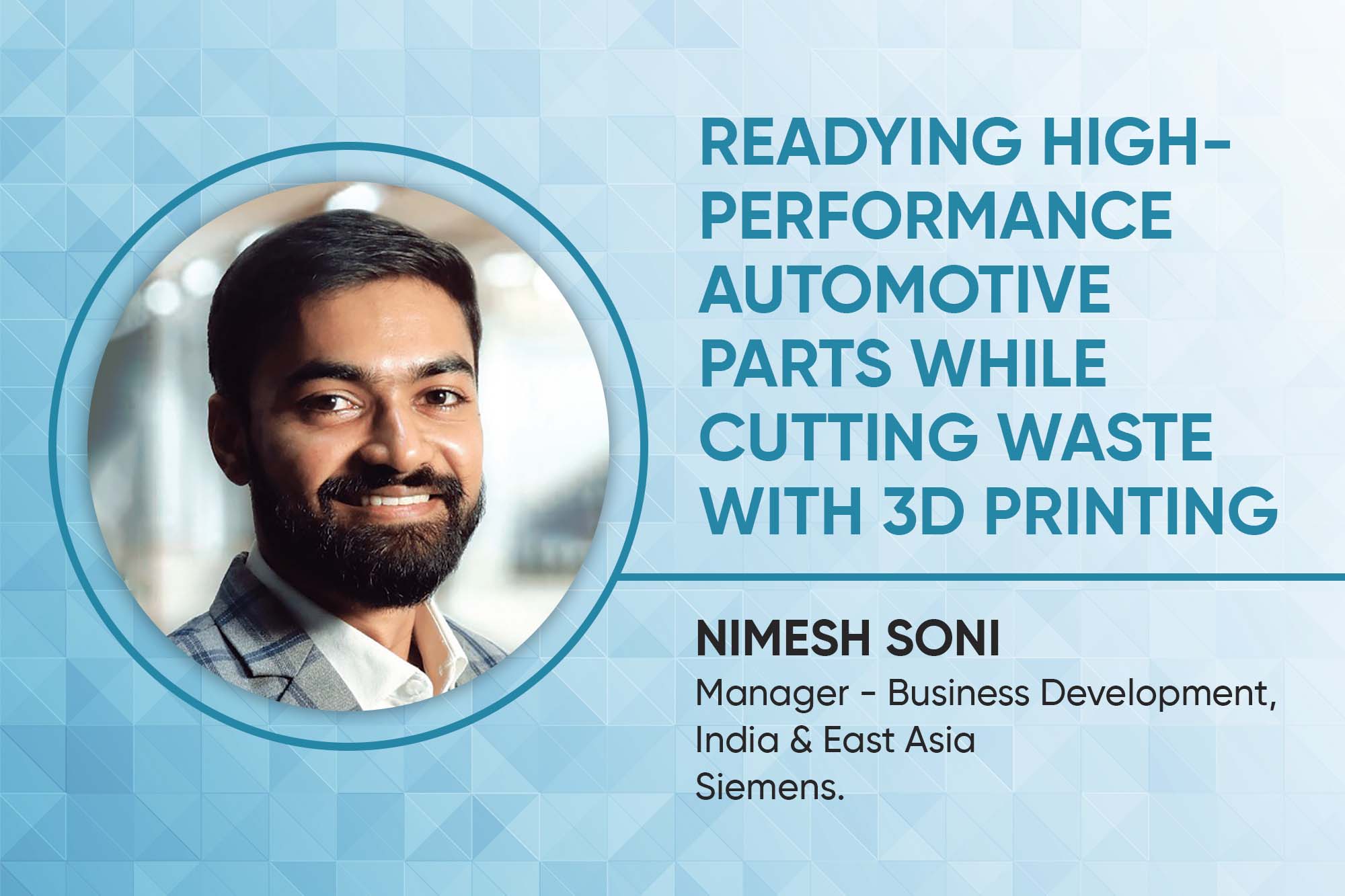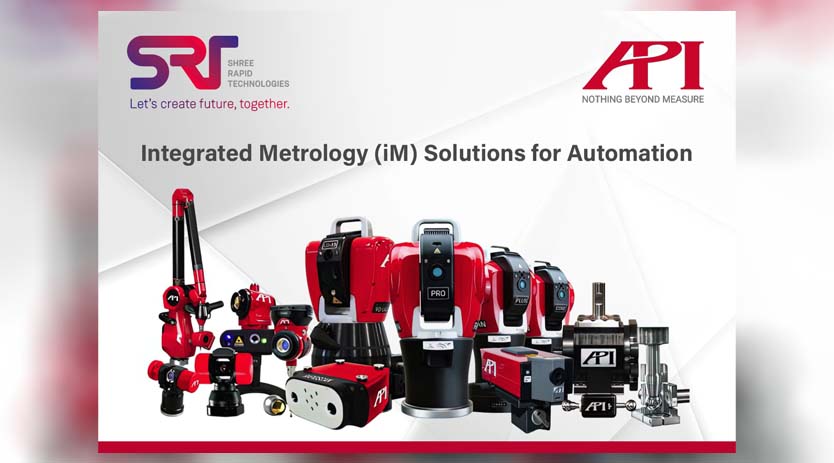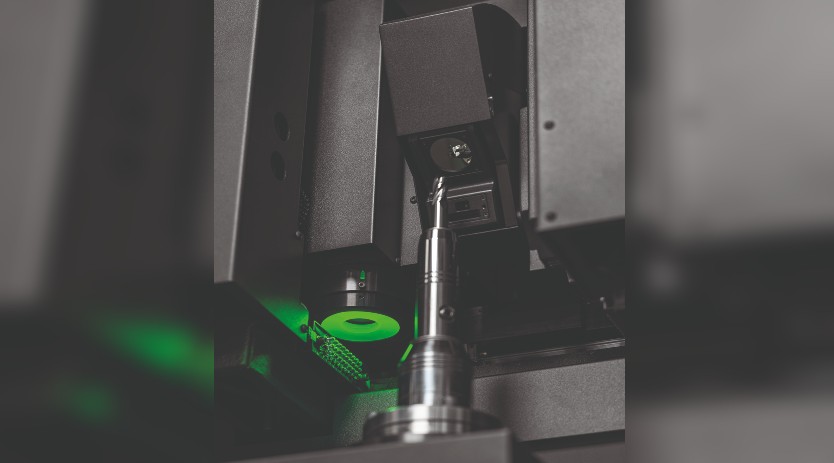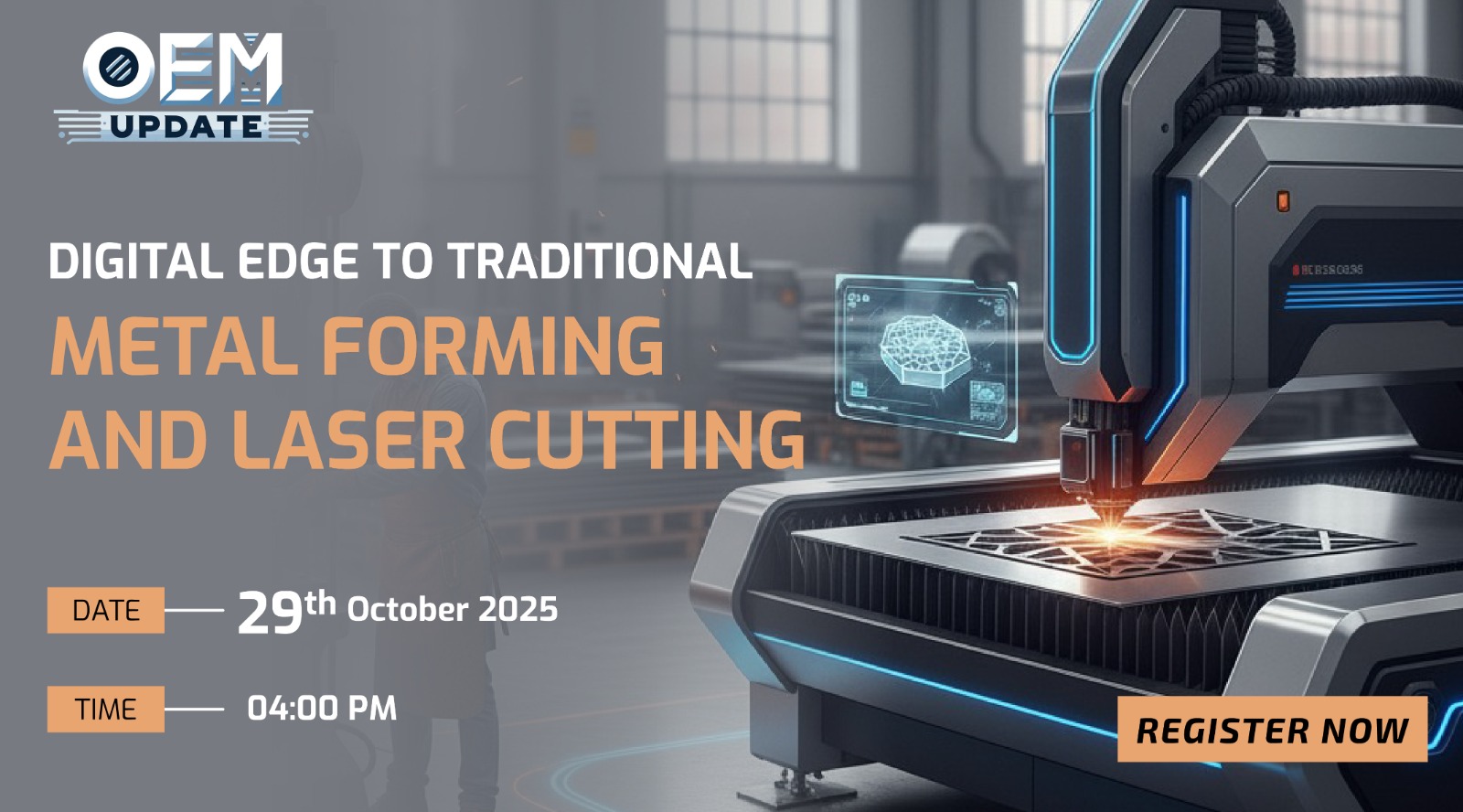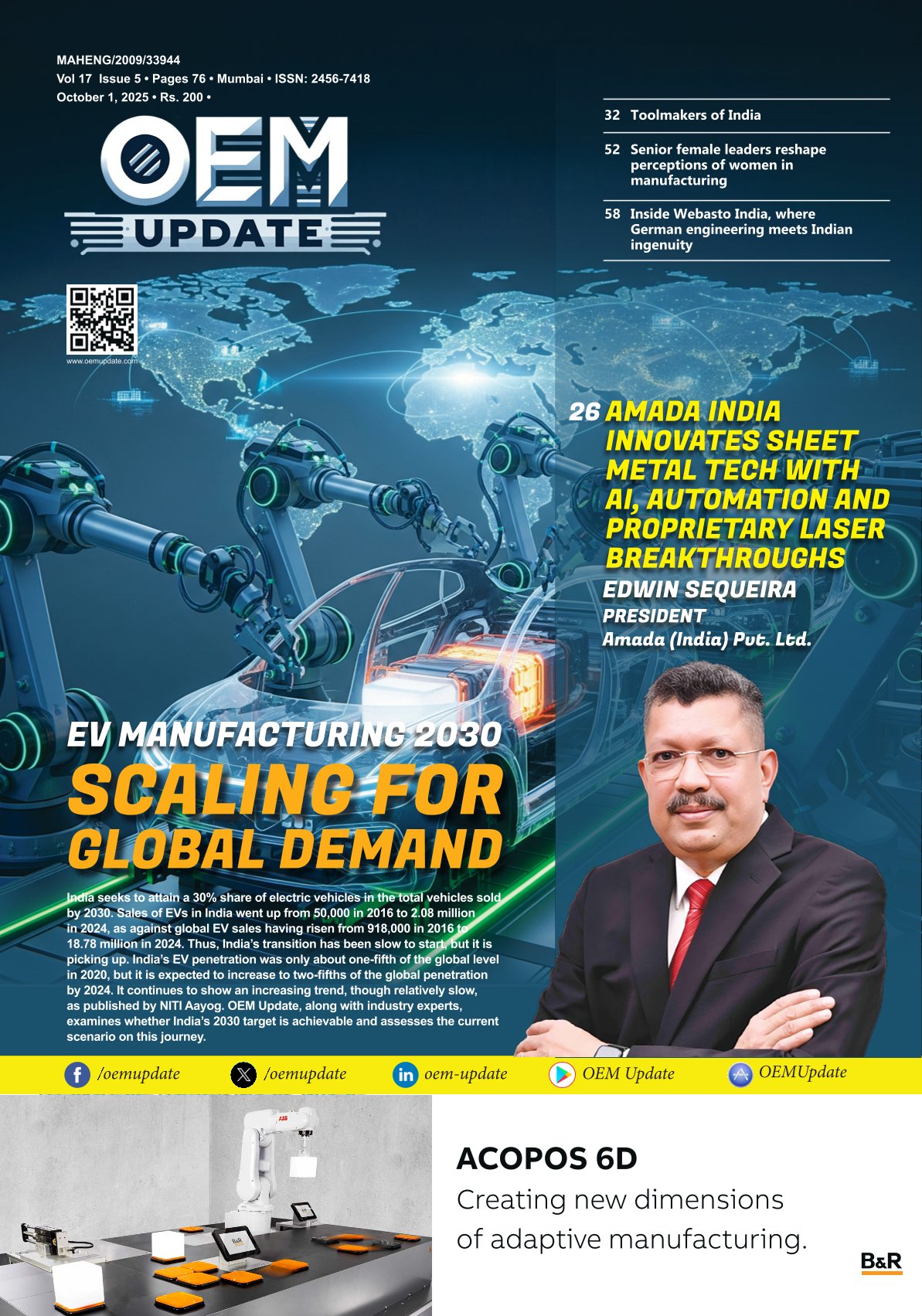Winning over supply chain challenges with 3D printing
By OEM Update Editorial April 12, 2022 2:48 pm IST
Additive manufacturing is transforming a complex system of parts into digital files, to store in the cloud and print on-demand specifically in areas of MRO, End-use parts, and manufacturing aids.
The 3D printing process uses a three-dimensional digital model to create a physical object by adding many thin layers of material in succession, thus lowering cost by cutting out waste. Uninterrupted supply chain is key factor for any metal, mining and energy. Usually their remoteness and support access time frame reduces their uptime and impact optimised performance. Latest technologies like Additive manufacturing or 3D printing opens up a new possibility of resolving this industry challenge and assures better uptime for your equipment and machineries, irrespective of supply shortage for almost any parts. High strength additive manufacturing is set to have a huge impact on these industries, especially in the areas of MRO, End-use parts, and manufacturing aids.
As on demand production becomes the norm, additive manufacturing and cloud technology uses a three-dimensional digital model that allows parts to be designed in the city, and produced on site, leading to better workflows, reduced downtime, and a secure supply chain. This technology is the disruptive innovation to impact global supply chains and operations.
As on demand production becomes the norm, this technology will rationalise inventory and logistics; reduce costs, improve time-to market, and will take production to local markets or customers faster, reaping benefits from innovation. It’s the disruptive innovation that impacts global supply chains and operations.
How Additive manufacturing can transform a complex system of parts into digital files that can be stored in the cloud and printed on demand, and on site. No need to worry about trade wars, quarantine procedures, rising shipping prices, lead times, or machining. Let us read on to find out what this means for the Mining, Metal & Energy industry in 2022 and beyond.
Future of 3D printed parts
In future all OEMs will prefer 3D printed parts over conventional parts. Most of the time, whenever meeting a customer, the first question is what is the future going to be in 3D printing. Mr. Anuj Budhiraja, Country Manager – India, Markforged remarks, it is memorable to meet the prospects and the customers, telling them that this is a plastic or composite part which is going to replace an unused part, nobody used to believe it. “The most difficult component in the most difficult industry with the most difficult machineries is metal and mining. If they can use the part as an end use part, this can be used in any industry as an end use part. But there are different aspects of looking into the adoption of this technology in the country as well.” As of now, it is still limited to the customised tools; it is still limited to the specified volume of the parts. So, going forward also this is not going to be replacing or challenging the traditional way of manufacturing.
“This is a technology which is going to complement the existing technologies; to help the innovator to be more innovative and save on time and energy and be more agile whenever there is a need.” And definitely, the whole world is moving towards mass manufacturing and mass customisation. Looking at consumer goods we’ll see some automobiles which are coming with customised parts in the automobile. So this is where the industry is moving. Mr. Budhiraja explains, this is the right time when India as a country is looking into embracing this technology at a higher space with all the digital transformation happening. There are a lot of service providers who do have metal printers, and then they provide those services.
Primary concerns for implementing the 3D printingPrimarily the concern is the need to convince the management. What is going to be the scope and concept like nobody believes that additive manufacturing, like Onyx can replace parts. Onyx is Markforged’s flagship Composite Base material, which is a micro carbon fibre filled nylon that yields accurate parts with a near flawless surface finish. Normally 3D printing people think that it is about plastic, making some jigs, making some toys, making some artefacts or something sort of in the medical industry, but it has gone way beyond that. And now industries are going to take it up. So, from prototyping, then mass manufacturing, it is a huge turnaround time; becoming a matter of some hours. According to Mr. Bibhudatta Mohanty, Innovation Head in Vedanta Limited, the challenges were in convincing the management, then procurement and starting up what needs to be done out of that. Additive manufacturing solutions from Markforged helped Vedanta to overcome supply chain challenges. During the procurement time, discussions with suppliers also needed to be done. “Once success comes in, technology is going to be imposed by everybody,” says Mr. Mohanty.
3D printed parts technology caters to all industry verticals. Each and every industry has different parts starting from tools: it could be a gripper, it could be a seal, and it could be an impeller of a pump as well. That is a huge list. The parts are already recyclable, but as a service you can scrap that and again reproduce as a filament because that filament will not be a virgin material. And there may be printable issues. So virgin material plays the role to print a new part, is the view of Mr. Prashant Sinha, Additive Manufacturing Expert, India, Markforged. Maybe there are a lot of companies from China who are supplying non virgin materials, suitable for toys but it will not give industrial output in terms of accuracy and strength.
It is necessary to maintain different moulds or materials for making spares through a 3D printer. There are no requirements for mould; that’s why we call it a digital inventory, explains Mr. Budhiraja. “If you have a broken part you want to regenerate, scan it, put it in a cap, put it in the printer, that’s it.” The inventory required is only for the materials, which could be of three or four kinds of material and made of high strength materials anyone wants to keep based on requirements every month.
Overall, the industry is moving towards exploring, experimenting from prototyping to the end use. Almost 10 plus parts, custom tools have been created in a short span of time by Vedanta. When Vedanta started using it, they just wanted to put it as a prototype but to their surprise it was better than the original part. It is already proven as of now, and has already been proven in multiple cases. So each and every industry does have different parts. Say, you have around 50,000 parts, out of which the few parts will start in phase one, then few go to phase two, and then in phase three rest parts may be implemented across the organisation.
A large fleet of equipment is being imported in mining fields opines Mr. Mohanty. So, when it comes to creating these parts, it may reduce dependability on the import aspects as that is the crux of matter. There are many proprietary parts that need not be done. But, this is going to be the next gen technology and it is going to work out a lot in India and for creating parts, acceleration rate is too high. Talking about certifications, Mr. Sinha says that for all the composite materials, whatever the grade, or even the containers, carbon fibre, and even metal; complete ASTM standards are available. So, whenever a designer or if he is a new start-up who is going to use the 3D printer, he can always refer to that sheet. Besides that Vedanta has a map of the University where complete content and technologies to transfer are there.
Way to future
In the last couple of years after the pandemic, everybody has learned their lessons in terms of how to handle the supply chain challenges in terms of how to manage their sales as well. Obviously, the leaders have to lead the way and then the industry will definitely follow up based on their successes. For adopting this technology, the first company in energy, metal and mining in India is Vedanta who has started implementing this technology. And the good part is they are happy and ready to share their great success so that the industry can follow and then improve for the better. Mr. Budhiraja suggests the production needs to go on even if the people are still working from home. So, how can it be possible! The only way is creating digital inventory, digital transformation; where everybody in each and every industry is ready to adopt this technology and moving towards more and more automation and manufacturing. So just to sum it all, the next five years are going to be really exciting for India in terms of adopting industry 4.0 and adopting digital transformation and newer technologies. In short, the additive manufacturing software enables 3D printing of any part, on-demand at the point of need for use in production lines.
Cookie Consent
We use cookies to personalize your experience. By continuing to visit this website you agree to our Terms & Conditions, Privacy Policy and Cookie Policy.




